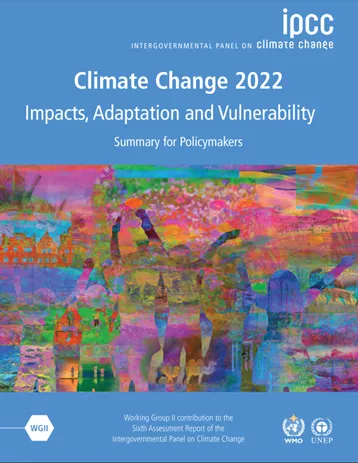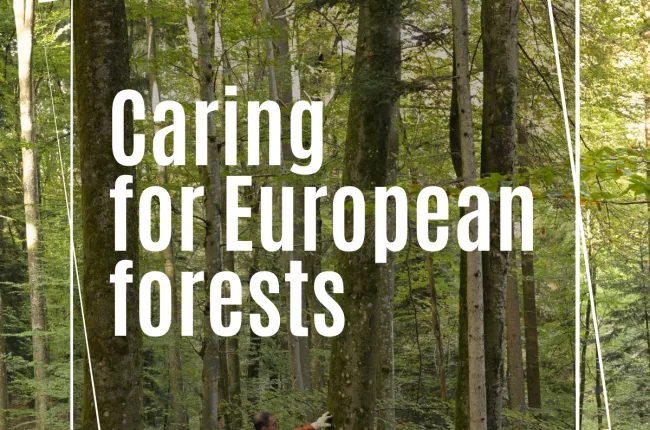Why should we care about climate change? - Second part of IPCC’s sixth Assessment Report, “Climate Change 2022 Impacts, Adaptation and Vulnerability”
On 28 February 2022, the UN’s Intergovernmental Panel on Climate Change (IPCC) published the second part of its sixth Assessment Report, “Climate Change 2022 Impacts, Adaptation and Vulnerability”. Following the first part of the report, focused on what is currently happing, the second report assesses knowledge about how climate change is affecting people and ecosystems and what can be done to limit consequences. The report examines impacts of climate change in all continents and for different ecosystems and the authors conclude that vulnerability differs among regions.
Looking at the forests and the provision of forest-based biomass, forest production systems are predicted to have variable responses to climate change across regions. While negative effects are expected to be more predominant in tropical forests, adaptation will also be needed in temperate and boreal regions, as tree mortality is projected to increase also in some of these areas. However, some productivity gains are expected in temperate and boreal regions.
To read the second part of IPCC’s Assessment report, click here.

What can we do? - Third part of IPCC’s sixth Assessment Report, “Climate Change 2022: Mitigation of Climate Change”
The third part of IPPC’s report, published on 4 April 2022, analyses mitigation potentials for different economic sectors, such as energy, transport or Agriculture, Forestry and Other Land Uses (AFOLU). IPCC Chair Hoesung Lee summarised the findings by stating that “we are at a crossroads. The decisions we make now can secure a liveable future. We have the tools and know-how required to limit warming”. While this is a powerful warning, it is also an expression that Humanity can still prevent the worst possible climate catastrophe.
The report states that there are realistic options in all sectors to cut emissions by half by 2030. Regarding the AFOLU sector, researchers concluded that “mitigation options, when sustainably implemented, can deliver large-scale GHG emission reductions and enhanced removals, but cannot fully compensate for delayed action in other sectors.” In this context the report also highlights the important function of forests to sequester and store carbon in trees and wood products and to provide raw materials that can substitute more greenhouse gas intensive products in other sectors. Barriers to these functions “may result from the impacts of climate change, competing demands on land, conflicts with food security and livelihoods, the complexity of land ownership and management systems, and cultural aspects.”

Lastly, the report highlights the importance of private forest owners to contribute to the mitigation goal as they “manage a significant share of global forests (…) and play a central role in land-based mitigation options.”
To read the third part of IPCC’s Assessment report, click here.




